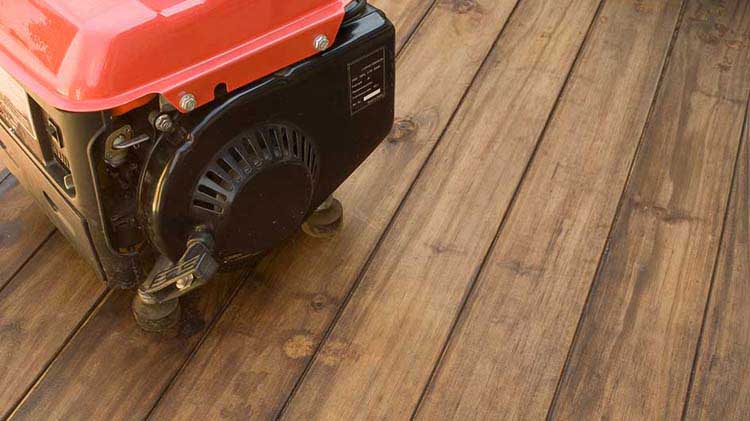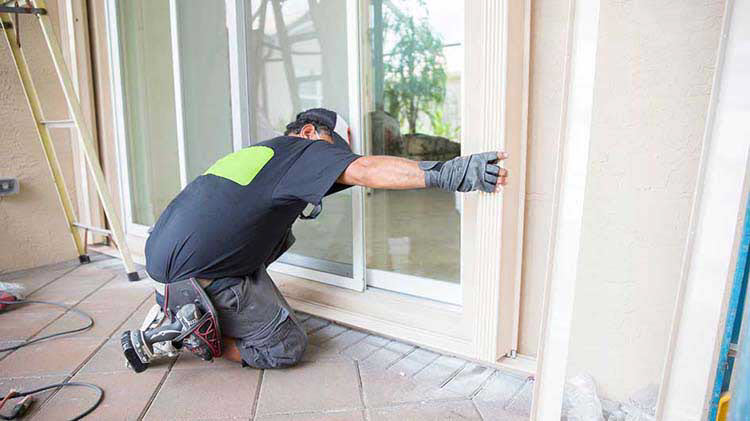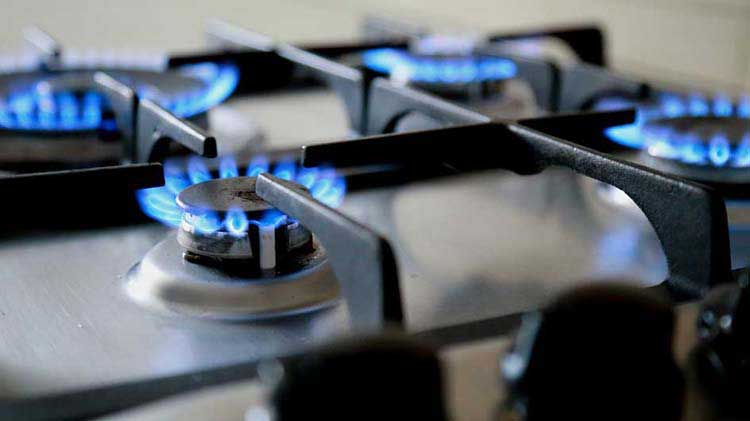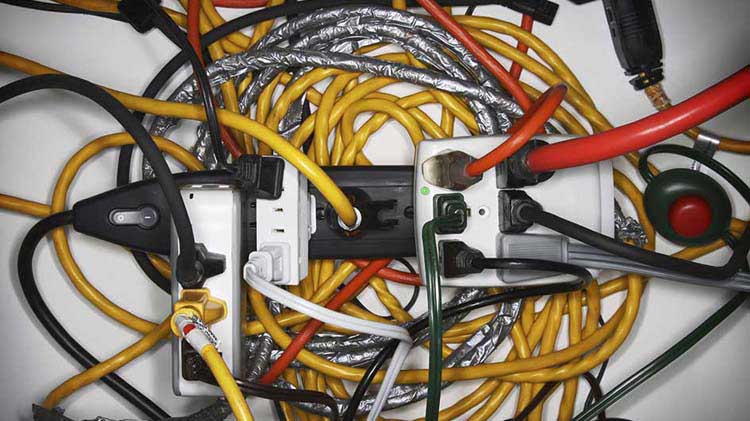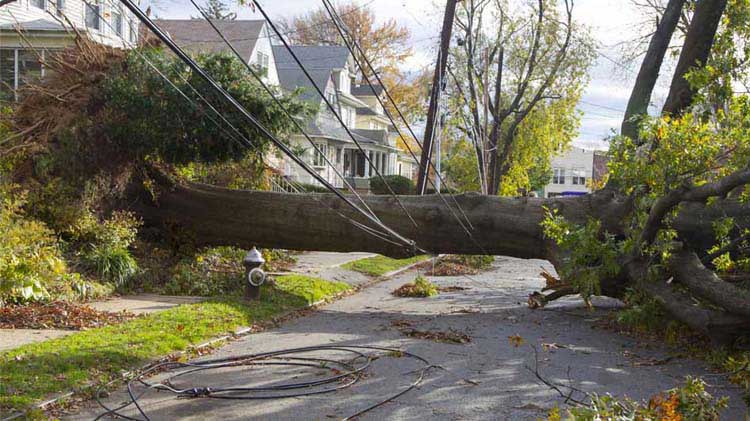Which emergency backup generator is right for you?
Considerations for permanent and portable generators.
A power outage in your home can be frightening, especially if severe weather is right outside your door. But there's another option to being left in the dark: an emergency generator. When the grid is down because of storms, hurricanes, freezing temperatures or other natural disasters, you never know how long it will take to restore power to homes. Having a backup generator in place can help provide your home with temporary power during an emergency.
Home standby generators or portable?
There are two types of generators for home use: home standby and portable. Each carries benefits and drawbacks, so make an informed decision based on the geography of your home and how much power you'll need if the lights go out.
Home standby generators
These remain permanently outside the home and on standby. They run on an existing fuel source — either liquid propane or natural gas — and are capable of generating enough wattage to re-energize your home in seconds after it loses power. That's because the permanent generator works in conjunction with a transfer switch to monitor incoming utility voltage. When your home's power goes out, the transfer switch will disconnect the utility line and connect a new power line from the generator to restore power within seconds.
Due to the sheer amount of power that permanent standby generators are capable of providing, they carry a hefty price tag. In addition, licensed electricians must install these generators, and your local utility company must be notified that you have a backup system in place. However, if you live in an area that consistently sees power outages, these type of backup generators may be a good option. Also, if you live in a climate that's consistently very cold and plagued with ice storms, this generator may prove worthwhile to power your furnace and hot water heater, to keep your home warm and your pipes from freezing in the event of a prolonged power outage.
Portable generators
Portable generators are a more affordable option when only a few vital electrical items are needed during a power outage. These generators are smaller and can be wheeled out of the garage. Their primary fuel is gasoline, so they should never be run inside the home or any enclosed area where deadly carbon monoxide (CO) gas can accumulate.
Extension cords can be connected to portable generators and run inside to power smaller appliances like the refrigerator, sump pump, furnace, hot water heater, lamps, TVs and computers.
To select the best home backup generator for you and your family, determine just how much power you would need in the event of a blackout. What could you do without for a few days? Hot water? Cold food? Check the manufacturer information for each appliance to find out the wattage of your necessary appliances, and then tally their numbers. A portable generator may be your best option if you stay aware of your energy consumption and hold to using the wattage limit of the generator. Depending on the model, portables can generate between 2,500-4,500 watts. By using energy wisely, you might be able to comfortably endure a blackout.
Remember, connecting a portable generator directly to your household wiring can be deadly to you and others. A generator directly connected to your home's wiring can "back feed" onto the power lines connected to your home and injure neighbors or utility workers. By working with a qualified electrician, a manual transfer switch can be installed to safely tie into selected circuits of your main electrical panel. If a portable generator is running and power is restored, the power company's electricity cannot get to those isolated circuits until the generator is turned off and the manual transfer switch is reset to the non-backup position.
Before you buy a generator
Do your research before buying a generator.
- Determine which electrical items are needed in an emergency.
- Homes in climates that have freezing temperatures need to protect against frozen pipes and the furnace will need to be on emergency power. Homes in climates that have hot temperatures and high humidity need to back up the air conditioner to protect against mold damage.
- To save the food in the freezer, the refrigerator will need to be on the system, as well as any stand-alone freezers.
- Homes with well water need to have the well pump on the generator system if toilets are to be flushed.
- Total the watts needed to determine what size generator is required. Consider both running and starting watts. An electrician can help make this determination, or you can check the manufacturer information for each appliance.
- Take your budget into consideration.
Before starting a generator
Before starting your generator, consider the following safety tips:
- Your garage is not the ideal location for running a generator. Portable generators should be placed outside at least 20 feet away from windows and doors so CO doesn't enter your home.
- Give your generator adequate "breathing" room — leave at least three to four feet of space around the unit to ensure proper ventilation.
- As a safety precaution, always have working CO detectors and smoke alarms in your home. It's recommended that you install battery-operated carbon monoxide detectors indoors according to manufacturer's instructions.
- Take care when fueling a gasoline-powered portable generator. Never add fuel while the unit is running or hot. If the tank is overfilled, fuel can overflow onto a hot engine and cause a fire or explosion. Start or stop the generator only when no electrical loads are connected.
After starting a generator
Be aware of the electricity produced by a generator
- Keep generators on dry, level ground outdoors. If you must use a generator in damp or wet conditions, protect the unit with a canopy. Many newer-model generators have built-in ground fault circuit interrupters (GFCIs). If yours doesn't, use a GFCI with your generator and extension cords for protection in damp or wet conditions.
- Check out extension cords that might be used to connect an appliance to the generator. Be sure cords are grounded, and do not use cords if they are cracked, frayed or visibly damaged. Check that extension cords are appropriately rated in watts or amps for the intended use.
- Never plug a generator into a wall outlet. Doing this creates an electrocution risk called back feeding which can cause an electrical fire in your home and burn out your appliances.
- To avoid electric shock, don't touch a generator with wet hands.
Watch for potential fire hazards
- Let generators cool before storing or refueling. If fuel spills on the unit's hot engine parts, it could ignite.
- Store generator fuel away from other fuels or combustible materials. Never store fuel in your home.
- Keep fuel in a proper storage container with clear labeling.
- Store fuel on a high shelf or in a locked cabinet where children and pets can't get to it.
- Never smoke near a generator or the fuel.
